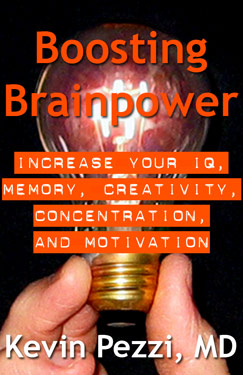Women in Medicine Part 8
Can women "have it all?" That is, can they be good mothers, wives, daughters, friends, neighbors, and still be good doctors?
Are women as competent as men?
Are women achieving their potential?
What can women do to achieve more?
While preparing this lengthy response to Melanny, I coincidentally received a related question from another person. She wrote:

This is a great way to spend your
life, but not to become a doctor.
Q: Dear Dr. Pezzi,
I have always wanted to become a doctor. I've been in the ER several times as a child and several times as a teenager. After a few times, I decided I would enjoy the rush and responsibility an ER doctor experiences. I have been accepted to Boston College as a science major this fall. I have every intention of becoming an ER doctor. However, here is my problem. I have been speaking with my friend whose mother is a nurse, and she has been telling me, "Don't hope for a social life, a husband, or kids. You won't have time for that as an ER doctor." Part of me wants to be a wife and a mother and the other part of me wants to help people and be an ER doctor. There is something that just makes me smile about putting on that white lab coat and treating a person who needs help. On the opposite side, there is something that makes me smile about the thought of running to a PTA meeting or picking up kids up from soccer practice. I would like your advice and input on the subject.
Thank you very much,
Kirsten
Answer by Kevin Pezzi, MD: I think that it is best for everyone, including men, to put their personal lives on hold while they train to become doctors. Motherhood, in particular, is very time consuming. It may be feasible for you to eventually work part-time as an ER doctor, but keep in mind that working part-time only reduces the work hours for which you are paid. When I worked as an attending doctor in the ER, for example, I averaged about 40 hours per week of paid time, and another 20 (sometimes more) of unpaid hours. These unpaid hours consisted of finalizing the care of patients I had at the end of every shift, then dictating any charts that I had not yet completed. Those tasks could range from no time (rarely) to three hours per shift, thus stretching an 8-hour shift into an 11-hour one, and a 12-hour shift into a 15-hour marathon session. Then there are the hours spent reviewing and signing my prior dictations. If you are thorough, as I usually was, your daily dictations in a busy emergency room could produce a stack of paper as thick as a book. You must also attend all sorts of hospital meetings: general medical staff meetings, departmental meetings, and various committee meetings. As if that is not bad enough, some of these meetings will be scheduled for times when you should be sleeping, based on your necessarily bizarre ER work schedule. A noon meeting doesn't sound too bad, unless you did not get to sleep until 9:30 AM. As an ER doctor, you will often be subpoenaed to give testimony in court on a prior patient, most typically a drunk or someone injured by one. You may also face another time drain if you are sued. Then there is the need for continuing medical education (CME). CME hours are not pared if you work part-time. In reality, the less you work, the more need you have for CME to stay on top of things.
If you heed these unpaid hours, you will quickly realize that part-time work won't seem so part time. Twenty hours of paid time may translate into 30-plus hours carved from your personal life. You might try to work fewer paid hours, but doing so makes it difficult to economically rationalize why you assumed so many student loans to become a doctor. I felt burdened by the $35,000 of debt that I incurred in college and medical school. That would be a drop in the bucket compared with the debt load today's students typically graduate with.

No other career will give you
the power to help so many
people in such dramatic ways.
If you save the life of a young
person, you will not only save
his or her life, but also the lives
of their children, grandchildren,
and other descendants, ad infinitum.
Thus, what you do will affect the
world not just now, but for thousands
and even millions of years into the
future. Think about it!
In many ways I truly regret going into medicine. This regret is what compels me to warn others of the drawbacks of medicine. If you become a doctor, you will at least do so with both eyes open, forewarned of the difficulties ahead. While I do have regrets, I must admit that I still relish putting on a white coat, as you described. There is something magical about that transformation from just another face in the crowd to someone who has saved innumerable lives and thereby left an indelibly permanent mark on society. No other career that I know of gives its practitioners the power to help so many people in such dramatic ways. The ability to help others in this way is extremely rewarding—much more so than I can describe in words. However, if you choose a medical career, do this with the expectation that the rewards of helping others will fully satisfy you. And please realize that you will never achieve your full potential as a doctor unless you are willing to sacrifice throughout your life. So is a medical career worth it? I can't answer that question for you, but you are now much better equipped to answer it for yourself.
Now back to Melanny's query about my expansive vocabulary. I went from being a "slow" sixth-grader to someone who wrote a complaint letter to my principal in high school that he said required "two weeks and a dictionary" for him to comprehend. (I've since tried to opt for multisyllabic words only when they more accurately convey what I wish to express, or when a fresh synonym is stylistically indicated.) Unlike other facets of my intellectual metamorphosis that will require careful elucidation, the way in which I improved my vocabulary is very straightforward: I read a lot, including the dictionary. You can accelerate your mastery of the English language by reading Word Parts Dictionary: Standard and Reverse Listings of Prefixes, Suffixes, and Combining Forms by Michael J. Sheehan, a retired but still coruscatingly brilliant professor who co-hosts a weekly radio program on WTCM AM 580 in Traverse City, Michigan. Professor Sheehan teams up with Ron Jolly, the witty and perspicacious morning host, to deliver a lively and informative hour of enlightenment on the English language.

I will not now delve into my tips for expanding brainpower other than to say that I think most people are their own worst enemies in regard to intellectual betterment (I discuss this in more detail on other pages of this site and www.ERbook.net). People fill so many hours absorbed in what are the mental equivalents of junk food—instant messaging, yapping on the cell phone, and being transfixed by televised pablum—that they scarcely have time to think. By "think," I mean putting your feet up and really cogitating, not just robotically memorizing something your teacher said.
From what I read, the number one Internet search term in 2004 was "Paris Hilton" (2007 update: ditto for subsequent years, too). Nothing underscores our appalling priorities more than to know that someone who has made a career out of being vacuous is so successful in captivating people. Some mental downtime is a necessary part of R and R, but most people have gone overboard wiling away their hours with inane distractions. Expending time in this way is acceptable for people whose occupations don't require much brainpower, but not for doctors who could always benefit from knowing more. When I was in medical school and obtained the highest unit exam grade in our class of 256 students, I was never impressed by what I knew, but shocked by what I did not know. That knowledge deficit compelled me to try even harder. I knew that someone would eventually benefit from that increment of knowledge. It is unfortunate that all doctors are not equally dedicated. Throw in a distraction here and a distraction there, and you might end up being like one of the three doctors who saw my Mom and needed a family member—me—to point them in the right direction. It does not require much brainpower to know when back pain is not run-of-the-mill back pain, so what is remarkable about this is not that I was so perceptive as it was that the other three docs were so obtuse.
I had a similar experience with a brother who was misdiagnosed by four physicians, including a neurologist, all of whom insisted that he had carpal tunnel syndrome. I insisted otherwise and said that he needed an MRI scan to help diagnose his condition, which turned out to be pernicious anemia with subacute combined degeneration of the spinal cord caused by a deficiency of vitamin B-12 (which is necessary for the formation of myelin, the white protective insulation surrounding nerve fibers of the central nervous system: the brain and spinal cord).
I could recount many more stories, all of which emphasize the need for doctors who are smarter, more knowledgeable, and more dedicated. We need people asking how they can become better doctors, not people wondering how much they can slack off and still squeak through medical school. I hate to be such a relentless taskmaster, but when you hold patients' lives in your hands, you are morally and ethically compelled to place their health needs above your personal needs. If you can do that, great. If you cannot, I won't blame you for wanting to live a normal, balanced life. Just don't become a doctor.

If you want to become a doctor,
be prepared to sacrifice your
personal life in your twenties.
Wearing that white coat is a priceless experience, but earning the right to wear it comes at a high price. Your family will pay part of that price, and so will you. While I worked 110 hours per week to become a doctor, I missed so many opportunities to spend time with my family and friends that I may as well been sequestered on the moon. I missed my best friend's bachelor party and wedding. I missed countless holidays, including major ones such as Thanksgiving, Christmas Eve, Christmas Day, New Year's Eve, and New Year's Day. My family members went on trips that I did not learn about until years later. My high school girlfriend Carol married a man who had time for being an involved father, and they had several children together. Me? I was cloistered in academic medical centers that molded their call schedules around the patients' needs, not the personal needs of the students and residents. I once wondered how I could go from knowing very little about medicine to being a doctor in four years. Now I knew. In that four-year period, I did the equivalent of 11 years of work. Do the math if you don't believe me.
These personal and family sacrifices are painful indeed. My Mom recently passed away, so I made a photo CD to distribute at her funeral service that included hundreds of pictures of her and her family. To make this CD, I combed through her collection of several thousand photographs. Many of these pictures were of family get-togethers that I never attended or even knew about. My Mom probably wanted to spare me the pain of saying "no, I can't come" because I was either studying, preparing for the board exams, attending some required event such as Saturday Grand Rounds, on-call, or sleeping after being on-call. It was a poignant experience to see what I missed. Those events are irretrievably gone, and so is my Mom. I was happy that I was later able to spend more time with her, but I mourned the fact that she and I were almost strangers while I was in training. The same is true of my brothers, other family members, and friends.

Being outside on a
sunny day . . . priceless!
I had much more free time once I became an ER attending physician, but the value of that free time was marred because of the odd hours I worked. Throughout my ER career, I either worked all night shifts or rotating shifts, in which my schedule would frequently change from day to afternoon to night shifts. Even when I worked night shifts for years in a row, I felt emotionally compelled to be awake during the day and sleep at night when I was not working. While it is physiologically better to maintain the same schedule, I never could bring myself to do that. I wanted to be around my friends and family. I wanted to sit on my deck and shop while the sun was out, not in the middle of the night. I'd sacrificed too much of the normal, everyday things that make life worth living, and, darn it, I wasn't going to let my goofy schedule keep me from experiencing some of these basic joys. I did my best to conform to the normal routine of being up during the day and sleeping at night. However, I paid a price for this: over a decade of incessant jet lag. My biological clock was so out of synch that I often felt like a zombie. Remember those 60 hours per week that I averaged working in the ER or doing one of the other tasks that my job required? To get a more realistic idea of how much time that job took from me, add in another 20 hours per week of time that I lost because of fatigue resulting from my erratic sleep schedule. Eighty hours of time per week "gone" for 40 hours of paid time. Considering this, my hourly pay of $70 to $110 per hour seemed less impressive. But wait, it gets worse. I usually worked as an independent contractor, which means that I received no health insurance, dental insurance, optical insurance, sick pay, personal days, retirement, unemployment insurance, or life insurance. Furthermore, as an independent contractor, I didn't just pay the Social Security contribution that everyone else pays; I paid the portion normally contributed by the employer. I also paid a state "Small Business" tax. And don't forget that, as a doctor with a protracted training period, I worked for years before I made my first dollar of profit. Prior to that time, I made little or no money and went further in debt. I thus had fewer total years to work in my lifetime—at least, hours for which I earned money. Figure in these things, and my pay seemed much less lofty. (See this related page that every prospective doctor should read.)
I eventually escaped the hellishness of medical school, residency, and working in the ER. However, for some doctors, and their families, the pain never ends. The publisher of A Doctor's Life: Unique Stories sent me a copy of that book and asked that I review it. It was written by William T. Close, MD. His daughter, the actress Glenn Close, composed the book's foreword. In reading that, I was struck by the fact that she seemed to do her best to put on a good face, yet she appeared to have been deeply wounded by something. But what? The answer to that mystery unfolds in the pages of the book in which it is evident that the author's stellar career came at the expense of his family, who were given short shrift as he toiled day and night taking care of patients. I think that all prospective medical students should read this book and then, before they commit themselves to the field of medicine, question whether or not they're willing to make such a sacrifice. Yes, it is possible to be an excellent doctor without neglecting your family, but only if you practice in one of the 9-to-5 specialties such as dermatology or allergy/immunology. If you're a real doctor, such as Dr. Close, something has got to give: your patients, or your family. Tough choice, isn't it? The decision made by many doctors in these days of HMO-ization is to be a second-rate doctor; I can't think of any physician my age who is as intensely devoted to medicine as some of the sages who trained me.
In True Emergency Room Stories (download it free) and elsewhere, I've described the predictable results that ensue when second-rate physicians meet patients who need a first-rate doctor. It ain't pretty. If you think of how many lives you will influence in your medical career either directly (your patients) or indirectly (their families), you needn't be a Putnam math whiz to realize that someone will eventually pay if you decide to study and work fewer hours (say 90 instead of 110) during training so that you can spend more time with your family and friends. If you become a dermatologist, big deal. If you become an ER doctor and hence work in a field in which you can always benefit from knowing more, paring your education will cost some patient his life.
If you think that I am overstating this, you are wrong. Dead wrong. I know of many cases in which second-rate ER doctors failed to save patients that should have lived. I know one ER doc who was too normal to give his training a 100% effort, so he did have some time for his family and friends during medical school and residency. Personally, he was a great guy. If you met him, you'd instantly like him. However, if you were a mangled mess of protoplasm after a car accident or teetering on the verge of death from some unusual illness, you would not want an ER doc who was that well-rounded, you'd want some nose-to-the-grindstone person who studied and learned more. I've noticed that many of the best doctors have an intensity about them that may not be as appealing as the friendliness evinced by the docs who are personally more well-rounded and normal, but if that intensity compelled them to be unrelenting in their acquisition of knowledge, you would appreciate it.
Todd certainly would have. He was an 18-year-old kid who arrived in the ER along with a friend after they were struck by a car. His friend, my patient, was more severely injured and was basically dead on arrival. Todd came in awake and talking, but he left in a body bag headed for the morgue after my ER colleague, the guy who was too nice and well-rounded to exile himself from his family and friends during training, treated him but could not manage a routine case of shock (blood loss). In a decade of ER work, I never lost any similar patient from shock. Had I been Todd's doctor, I would have saved his life. He would likely now be married and have a few children of his own. Todd's parents and siblings are still probably haunted by his premature death. How do you think they would feel about medical students who believe that it is kosher to give an 85% effort so they could live a more well-rounded life?

Want to be called "doctor"?
Those 85% effort doctors are fine for most patients at most times, but not all. Certainly not for Todd. I think that anyone who becomes a doctor and specializes in a potentially life-and-death field (which is most specialties) is morally compelled to give a 100% effort—even if that requires a personal sacrifice, which it always does. If you fully earn the right to wear a white coat and be called "doctor," you can be proud of the fact that you were selfless enough to put the needs of your future patients ahead of your personal needs. Yes, I grieve the things I missed while I trained to become a doctor, but I'm sure that I miss those things much less than my patients would have missed being alive had I not saved their lives. Medicine is a career that demands sacrifice from its practitioners. If you are not willing to sacrifice, you should consider another job.
The September 2004 issue of Redbook included an article that mentioned five family-friendly careers. These were being a writer, fitness trainer, computer professional, healthcare aide or therapist, or a pre-k to elementary teacher. Notably, none of these careers involve the level of sacrifice required of physicians. Hence, I think that Redbook is giving sensible and pragmatic advice, not the dreamy sort of idealism that fuels the notion that a woman can "have it all" and be a SuperMom, SuperWife, SuperFriend, SuperDaughter, SuperSibling, SuperNeighbor, SuperCitizen, and SuperDoc—and still have time for herself, too. SuperWrong.
It is interesting to consider exactly what it is that makes people either contented and happy versus discontented and depressed. If you examine various cultures around the world and look back at history, you will quickly realize that there is little correlation between material possessions and happiness. If you sought the one element that explained this difference in overall life satisfaction, it would be that dissatisfaction and depression are more likely when the realization of people's dreams and expectations are frequently thwarted. The more unrealistic and unattainable the dream, the more likely it is to NOT happen, thus creating disappointment and unhappiness.
Women are more likely than men to be depressed. Much of this predisposition is attributable to their biology, but I think that some of it stems from the fact that women often expect too much of themselves—at least the ones with children. Therefore, this self-imposed pressure to be SuperDoc and SuperEverything 24/7/365 is bound to generate frustration and unhappiness. There are limits as to how far you can be stretched. Some degree of striving is healthy, but asking too much of yourself is not.
A Time magazine article ("What Women Want Now," October 14, 2009) reported on the results of a survey they conducted in conjunction with the Rockefeller Foundation that explored how the women's liberation movement affected women. In the past 40 years, as women have become freer, better educated, and more powerful, they have also become less happy. This meshes with the observations I've made in my life. When I was young, most women appeared to be reasonably happy and content; few women were chronically overworked and frazzled. Now, negative emotions and signs of exhaustion are not rare.
 So what went wrong? Why shouldn't more freedom, education, and power augment happiness? Women are spreading themselves too thin. Their happiness might have improved had men equally shared the responsibilities of housework and raising children—something that would easily be feasible if both partners worked half-time. However, women sabotaged their efforts to gain freedom and happiness by voting more often for liberal Democrats who think that the solution to every problem is higher taxes. Result? Thanks to the government draining an ever-increasing amount of our income, both partners must often work full-time. The solution is obvious: everyone should stop voting for liberal Democrats. The taxes and regulations they've imposed have bankrupted our country. Liberal policies primarily appeal to people who have not fully considered their long-term consequences.
So what went wrong? Why shouldn't more freedom, education, and power augment happiness? Women are spreading themselves too thin. Their happiness might have improved had men equally shared the responsibilities of housework and raising children—something that would easily be feasible if both partners worked half-time. However, women sabotaged their efforts to gain freedom and happiness by voting more often for liberal Democrats who think that the solution to every problem is higher taxes. Result? Thanks to the government draining an ever-increasing amount of our income, both partners must often work full-time. The solution is obvious: everyone should stop voting for liberal Democrats. The taxes and regulations they've imposed have bankrupted our country. Liberal policies primarily appeal to people who have not fully considered their long-term consequences.
If you've read my free book From Bailout to Bliss, you know that Republicans are only marginally better than Democrats. Both major political parties are destroying our economic prosperity and virtually enslaving not just us, but generations to come. If Americans voters don't wake up, and soon, our children, grandchildren, and even great-grandchildren will curse us for not being smart and principled enough to replace our current government with a good one, or at least a decent one.
Democrats think that Republicans are the problem. Republicans think that Democrats are the problem. They're both correct.
Being a mother is a demanding job in itself. Working mothers face additional demands that frequently leaves them frazzled. Mothers who are doctors are challenged by the difficulty of how they can be a great doctor and everything else. Judging by what my friend the nurse said two pages ago, female doctors are generally not as competent as their male counterparts. Thus, in her opinion, who is it that suffers? The patients of female physicians who strive to lead normal, well-rounded lives at the expense of doing what they arguably should be doing, which is to focus on medicine day and night until the day they retire. As I previously mentioned, one of my female friends is a physician—and a superb one, too, I should add—who expressed the same conviction. She thinks that motherhood is too much of a distraction for it NOT to tarnish the medical potential of women. Think about it.
Even if you discount everything else I said, consider what my two friends are telling you. They are not female-bashing people whatsoever. One holds what I think are moderate feminist views, and the female doc . . . well, she has staunchly feminist viewpoints and would lambaste anyone who denigrated women without cause. So when she pillories the competency of female doctors who are, in her opinion, distracted mothers, she is not doing so on the basis of any bias. She is just tuned into reality.
Remember Dr. Pococurante, whose lack of dedication and competence in treating my Mom made me livid? During our argument, I was filled with disgust that she would try to abandon my Mom's care at such a vital time. I told her that if she were a resident and pulled her "screw you, it's past my quittin' time" stunt on a similar patient, she would be given the boot or at least royally reamed. Her response? She emphatically insisted, "I am a good doctor!"
Dream on, Poco.
I've had it with doctors who do not know the true meaning of dedication. Please don't become one.
I realize that some people will bristle at what they've read on this page and the preceding seven pages of this section. Many people would no doubt like to hear that yes, it is indeed possible to combine a medical career with a fully-rounded personal and family life without shortchanging anyone. Other than the exceptions I have previously noted, this is not possible. If you can figure out how to do it without becoming one of those 85% doctors, such as the one who cost Todd his life, please write and tell me and others how this is possible. We're all ears.
Finally, please note that I am not trying to dissuade women from becoming doctors. Female doctors can be just as skilled as their male counterparts, if they are willing to put forth the same effort—which often necessitates postponing motherhood. However, most women think that friends, family, and having children are important. I agree. In fact, I wish that I could go back in time and choose a different career in exchange for more time with my friends and family. Even if you opt for the 85% approach, you still may regret the sacrifices you had to make. Your patients may have some regrets, too. Can you guess what Todd's regret would have been?

